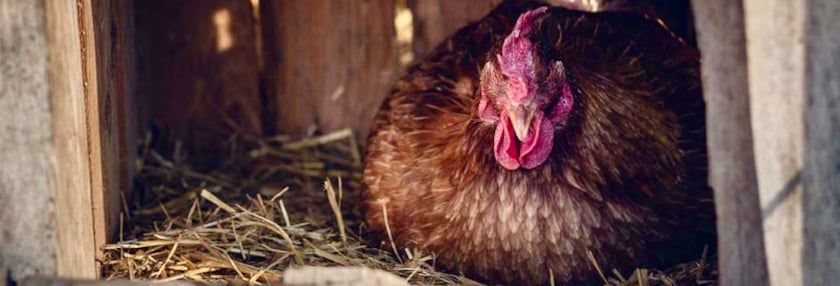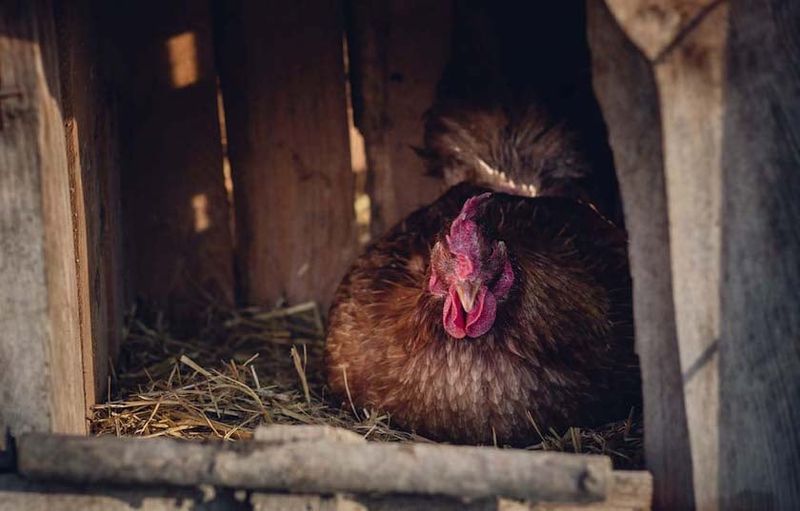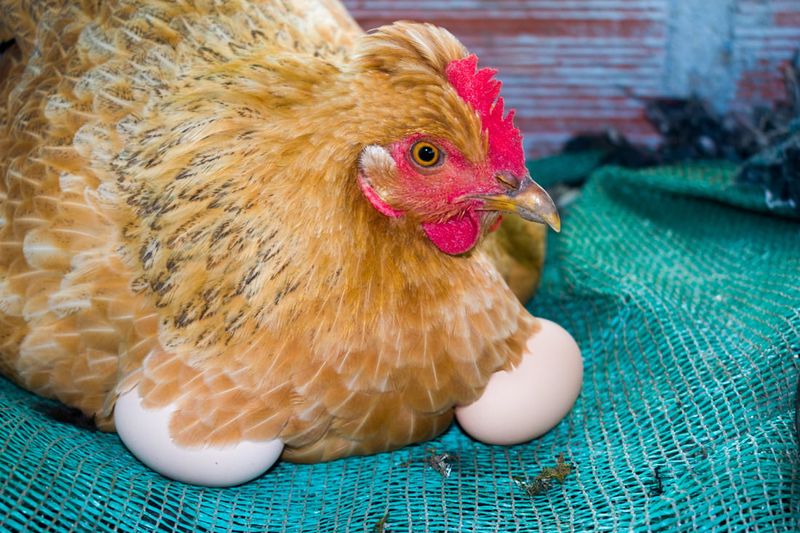Help! My Hen Stopped Laying


Is this normal, or should you be worried?
Hens normally lay one egg a day, but this isn’t always the case. In fact, they seem to take breaks or even stop laying for long periods of time. There are many factors and variables that go in to whether or not your hen will grace you with an egg on any given day. You can’t force a hen to lay an egg.
Consider her age
Your bird might be either too old or too young. Pullets typically start laying eggs at 18 to 20 weeks. Not all breeds start at the same time. A late-maturing breed like Silkies may not start laying until 7 to 9 months of age, and the first season of laying will be their best season. After that, they will gradually lay less and less with a large drop off after 4 years. Pullets coming of age during the winter may not start laying until spring.
You can tell by looking at their vent as to whether they are still laying. If the vent is soft and pliable, they are laying eggs. If the vent is stiff and not flexible, she may have stopped laying because she is too old.
What about her breed?
Certain breeds do not lay as many eggs as others. Good layers like Rhode Island Reds or Buff Orpingtons can lay 200 eggs per year; Ameraucanas or Silkies lay fewer than 100 per year.
Chickens have a set number of eggs that they lay in their lifetime. Some go through that number very quickly and then become “spent hens.” Other birds that take breaks in their laying can lay eggs for a number of years beyond others.
Healthy birds
Any illness will cause her to stop laying. Respiratory issues are a common problem in a flock. Becoming egg-bound would be another reason for egg production to stop—an egg could be stuck inside of the hen’s body.
Gently feel around her abdomen area and you may feel the stuck egg. Add electrolytes and calcium to their diet. Apply a lubricant to her rear and give her a quiet, private place to lay her egg.
Is she comfortable?
Nesting boxes are an important part of your hen’s egg production. Not having enough nesting boxes can be an issue—hens need a private place to lay their eggs. You should have one box for every 4 hens, 18 inches off of the ground. Make sure that the boxes are not harboring parasites that can bite at hens while they are laying. Use poultry dust in the bottom of the boxes.

Broodiness is when a hen decides that she is going to hatch out some eggs and start a family. Even if you remove the eggs, the hen can still continue to be broody. While she sits and waits, she will not lay any eggs. Broody hens sometimes will stay on a nest for three or more weeks, patiently waiting for chicks. When she is finally done sitting, she will begin to act normal again and start laying as usual.
Seasons impact egg-laying
Seasonal changes can make hens slow down. As daylight decreases, the amount of eggs laid will decrease as well. Temperature and sunlight have a big influence on egg laying. Hens need between 14 to 16 hours of sunlight a day for egg production.
Hens know that winter is not a good time to be raising a family and egg production will drop off or stop.
Peak laying for hens is around June 21, the longest day of the year.
You can use artificial light to fool hens into thinking that they should be laying. All you need is a small light fixture and an LED bulb set on a timer to go on early in the morning and add extra hours of daylight.
Molting occurs in the fall. This is when your hens start to lose their old feathers and grow new ones. Many hens take a break during molting because they are using all of their energy and protein into creating new feathers. After her new feathers have grown in, she will begin to lay again, which can take anywhere from 3 to 16 weeks, depending on the bird.
Products like Feather Fixer can help increase the amount of protein in your bird’s diet during molt.
They have to eat well
If your chicken’s dietary requirements aren’t being met, they will not be laying eggs for you.
Your hen needs around 20 grams of protein daily to lay an egg. They also need calcium, phosphorus, vitamin D, fat, and water, so you should be feeding a layer feed which has the correct amount of nutrients for egg production. A couple of good treats to help with protein would be Scratch and Peck feeds as well as mealworms.
Even a few hours without water can cause hens to stop laying. Chickens drink three times as much water by weight as they eat.
Make sure that their water does not become frozen in the winter by using heated bases and galvanized waterers.

Make it stress-free
Stress can also be a factor as to why your hen isn’t laying. A scare from a predator or a family pet can stop laying for several days. Trauma or injury to the bird will stop them from laying.
Moving birds to a different pen or adding new flock members which disturbs their pecking order will also decrease laying as this causes stress.
Hens do not like change of any kind. Monitor your possible changes: type of food, having enough food and water, overcrowding, and extreme weather all can throw them off of their schedule.
If you let your birds free range, they may be hiding eggs in places where you can’t find them. Hens can be sneaky that way as they try to find a private spot.
Tags:Chicken Chatter

Acreage Life is part of the Catalyst Communications Network publication family.
















